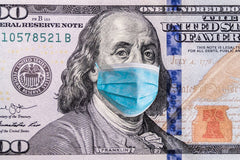Your cart is currently empty.
Free shipping on orders over $50

- Feb, 03 , 20
- 0 comments
Why Cash Handling Is Important for the Retail Industry
Contents
Even in our increasingly-cashless world, cash handling is vital for retail businesses. Just because other methods of payment are becoming popular, there is no reason to think that cash will not remain an important and popular payment method for the foreseeable future.
With card payments, there is little risk of loss. If you charge $20, you will be paid $20. Cash transactions are not always so reliable. If you charge $20, you might be handed a $20 bill, or twenty $1 bills, or a $50 bill. Almost every cash transaction represents the potential for loss.
Consider using a bill counting machine to streamline and improve your cash handling processes.
That’s why proper cash handling is vital. Especially for new and small businesses, money management is crucial and any loss can be crippling. Ensuring that your employees are properly trained in cash handling can make a huge difference in your bottom line.
How to Avoid Bad Cash Handling Habits
If you haven’t done so already, one of the best things you can do to improve your cash handling is to standardize the process. This includes what your cashiers do when they accept it, how they make change, and how and when you add up each till. The exact process will vary from one business to another, and there’s not one right way to do it. What’s important is having a standard process, because that makes it much easier to spot mistakes.
Every business will have different procedures. One manager might have the tills counted four times, another might be satisfied with twice. One might have three bookkeepers, and another four. The point is that the specific policies aren’t always the most important part. Don’t worry too much about that; there are some things you’ll want to be sure and include, but simply having the procedure in place will go a long way toward improving your cash handling.

You should also develop policies about who handles the money, and how much money they can handle. This is because it is always a bad idea to have one bookkeeper handling all of the cash. There are too many opportunities for mistakes to go unnoticed or for theft to occur.
With only one person managing the whole process, they will have no idea when they make a mistake. Adding one or two more people not only increases the odds of catching mistakes, but it also minimizes the damage that one person can do when they make a mistake.
Make cash deposits frequently, too. Having too much cash on hand becomes a major security risk. It’s much harder to steal from a bank than from you. Often, business owners prefer to wait to make a deposit, so that they minimize the number of trips they have to make to the bank.
It’s understandable that making multiple trips to deposit money is frustrating and time-consuming. Leaving all of that cash sitting in your safe is dangerous, though. It makes you a very tempting target for thieves who are paying attention. If you do suffer a break-in, it’s far better to have your cash deposited in a bank than sitting in a safe. Your bank account is a secure location. Your safe is less secure.
All of these things should be included in your policies and procedures when you standardize the process. If you already have a standardized process and it doesn’t include these ideas, you might want to reconsider. You may be surprised by how much money you are already losing as a result of your cash handling process.
The Importance of Training Your Employees
Human error accounts for a lot of losses. Once you have your policies and procedures in place and optimized to minimize loss and eliminate bad habits, you have to train your staff members.
It isn’t enough just to explain the policies to them. Habits are hard to break, but training is a good tool to break them with. It’s also possible that, in training your employees, you’ll discover bad habits or deficiencies that you didn’t know about. It could be something as simple as a cashier who struggles with math enough that making change is a problem for them.

The other benefit of training is that, in addition to removing bad habits, it builds good ones. Properly trained employees will find that the new standard procedures have become just as habitual as the old ones.
Training for all employees also means that they can more easily correct errors that other staff members might make. For instance, one cashier may notice that another one has not followed the procedure in the way that he or she accepted cash payment, and remind of the new policy.
For new staff members, training helps them to adjust to a new work environment more quickly. Having existing staff take responsibility for the training is a good way to really reinforce the new policies.
How Cash Management Technology can Help
Technology can help with cash management in many ways. Point of sale software can calculate the change a customer is due so your cashiers don’t have to. Cash recycling systems can count and refill a till for the register.
The most common cash management technology, though, is the automated money counting machine. These machines can dramatically improve your money counting, eliminating concerns about accuracy, and they can do it very fast.
Counting machines with the ability to detect different denominations can also help you keep track of the bills and coins you need. You’ll have an accurate account of how much you have of each bill and coin, which ensures that you know exactly how much change to order.
Cash management tech cannot completely eliminate human error in the cash handling process, but it can minimize it. Your employees still have to handle the cash at some point. Cashiers have to count out the correct change and make sure that the payment they received is accurate. They still have to properly sort the bills in their cash drawer.
All of this means that you can never completely eliminate human error from the mix. As long as you have human employees there will be mistakes made. What technology can do for you is to minimize those errors as much as possible.
It can also help you to spot counterfeit bills. Relying on your cashiers to spot these is never a good idea. Counterfeiters are good at what they do, and your cashiers don’t have the time to check every bill that comes through their station. A money-counting machine will usually have built-in counterfeit detection equipment, and it can easily scan every single bill that comes through your business.
Best Practices for Cash Handling
Since using cash management technology alone is not going to eliminate human error entirely from the cash handling process, these are the best practices to follow.

- Minimize the number of cash handlers. More people handing the money equals more chances for human error to enter into the mix. It also becomes difficult to trace errors back to the source, which means it is difficult to fix them. In addition to limiting the number of people in the cash office, this means limiting the number of cashiers on each shift. You have to strike the right balance, though. Too few people isn’t good either, and increases the risk of human error too. This is probably more art than science.
- Security. This comes down to policy. Limit the amount of cash you keep on hand by having a clear policy for how often you make deposits in the bank. More cash on hand makes you a target for theft. By the same token, you want to have clear policies for when you pick up the tills, when the tills are counted and filled, etc. A good safe is important, too.
- Paper trail. Keep a clear trail of your cash handling process. This partly because it protects you, and partly because it makes it easier to trace mistakes when they happen. Cash receipts and supporting documentation for each till count help to establish a clear paper trail to assist in any investigation.
- Invest in Cash Management Technology. We’ve already dedicated a whole section to this, but it really is one of the best ways to improve your cash handling process. Money counting machines don’t make the same errors that human money counters do. They will eliminate the majority of the mistakes that hurt your bottom line in the cash handling process.
Conclusion
Improving your cash handling process is one of the best things any small business can do. It will go a long way towards preventing your business from experiencing the same sorts of financial problems that so frequently derail small businesses.
Improving your policies and procedures, along with investing in good cash management technology, improve your cash handling and eliminate much of the human error that tends to make manual cash handling so problematic. You’ll never completely get rid of it, but you can make it so rare in your business that it hardly affects your profits.
Search
Custom Menu
Recent Post
Archive
- April 2022
- September 2021
- July 2021
- February 2021
- December 2020
- September 2020




